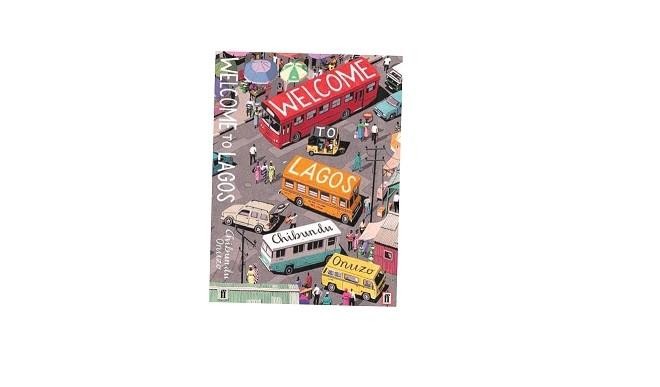New books you should read, pronto!
Kan’s ‘The Carnivorous City’ Let’s start with Toni Kan’s ‘The Carnivorous City. If you have read his collection of short stories, ‘Nights of the ‘Creaking Bed’ you sure will be buzzing off to get this book. I wouldn’t waste time with chit-chat. Here, read this and judge for yourself straight from the back cover: “Lagos […]


Kan’s ‘The Carnivorous City’
Let’s start with Toni Kan’s ‘The Carnivorous City. If you have read his collection of short stories, ‘Nights of the ‘Creaking Bed’ you sure will be buzzing off to get this book. I wouldn’t waste time with chit-chat. Here, read this and judge for yourself straight from the back cover:
“Lagos is a beast with bared fangs and a voracious appetite for human flesh. Stroll through its neighbourhoods, from the gated communities of Ikoyi and VI to Lekki and beyond, or explore the warrens and alleyways of the mainland, and you can tell this is a carnivorous city. Life is not just brutish – it is short.”
Chika Unigwe, author of ‘On Black Sisters’ Street and Man Booker International Prize Judge describes Kan as one who creates unforgettable characters and an unforgettable portrait of Lagos.
And an excerpt from the very first page:
Soni is missing.
Three simple words that seemed as if a lifetime had been compressed into them, a lethal payload of pain and fear waiting to detonate and decimate. Those words shocked and calmed in equal measure, like a letter bearing bad news delivered long after its contents have been made known.
That was the sum of the text message Abel received that morning and the one message he now had to forget. But there was a problem: to forget , you had to learn not to remember.
Habila’s ‘The Chibok Girls’
This book is to hit bookstores in November. Helon Habila is the author of ‘Oil on Water’, set in the Niger Delta, ‘Waiting for an Angel’, and ‘Measuring Time’. Of course if you have read any of these books you should be wondering about this new addition, perhaps because it’s nonfiction. This chat I had with the author gives quite a load of insight: “It is focused on the 276 Chibok girls kidnapped by Boko Haram in 2014. It is about my trip to Chibok and my interviews with some of the parents of the girls, and some of the girls who were able to escape,” Habila said. “The book also looks, broadly, at religion and politics in Nigeria, especially northern Nigeria where I am from. Boko Haram is one of the most devastating experiences – to both Christians and Muslims – the country has ever seen. It is so significant that Nigeria will psychologically be changed forever because of it, just like the civil war changed our psychology. All thinkers and patriots need to start asking the question: how did we get here? How should we avoid a repeat? This is a conflict that has killed over 20,000 Nigerians and displaced millions, and it is still going on.
Non-Nigerians have written about insurgency in Nigeria, but when a Nigerian and a writer such as Habila does, then much should be expected.
Ominiabohs’ ‘A Conspiracy of Ravens’
Writers hate this. Well, some do, but I’m going to say it anyway. I felt like I was reading Frederick Forsyth while journeying through the pages of ‘A Conspiracy of Ravens’. It’s about oil. Yes, petrol, fuel, whatever you choose to call it. This dark liquid that makes youths in the Niger Delta scramble to scoop, however dangerous, and makes militants take up arms against the government of the day. The kidnapping of oil workers, the greed in high places with ‘big men’ from the same oil reach community cornering gains for themselves instead of investing in that same community they claim to be fighting for in the limelight. Yes, this is the summary of Othuke Ominiabohs’ crime thriller.
The book is fast-paced, characterised by action, suspense, deceit, treachery, betrayal – name it. But most of all, it got me thinking about the suffering of those people deprived of their major occupations of fishing and farming. This author wrote like he had spent some time in the creeks. The capture of white expatriates takes the reader on a roller coaster.
Onuzo’s ‘Welcome to Lagos’
It all started when her novel ‘Spider King’s daughter’ was published in 2012. Chibundu Onuzo’s ‘Welcome to Lagos’ came out with a bang. The cover art alone appeared to tell the story even before its proposed release in 2017. Everything about the cover creates random thoughts in the reader’s mind about Lagos. There’s the molue, that famous bus usually jam-packed with folks and pedestrians here and there.
But there’s more. Here’s an excerpt:
Deep in the Niger Delta, officer Chike Ameobi deserts the army and sets out on the road to Lagos. He is soon joined by a wayward private, a naive militant, a vulnerable young woman and a runaway middle-class wife. The shared goals of this unlikely group: freedom and new life.
As they strive to find their places in the city, they become embroiled in a political scandal. Ahmed Bakare, editor of the failing ‘Nigerian Journa’l, is determined to report the truth. Yet government minister Chief Sandayo will do anything to maintain his position. Trapped between the two, they are forced to make a life-changing decision.
Full of shimmering detail, Welcome to Lagos is a stunning portrayal of an extraordinary city and of seven lives that intersect in a breathless story of courage and survival.
